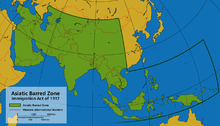This is your morning Open Thread. Pour your favorite beverage and review the past and comment on the future.
Find the past “On This Day in History” here.
February 4 is the 35th day of the year in the Gregorian calendar. There are 330 days remaining until the end of the year (331 in leap years).

On this day in 1789, George Washington becomes the first and only president to be unanimously elected by the Electoral College. He repeated this notable feat on the same day in 1792.
The peculiarities of early American voting procedure meant that although Washington won unanimous election, he still had a runner-up, John Adams, who served as vice president during both of Washington’s terms. Electors in what is now called the Electoral College named two choices for president. They each cast two ballots without noting a distinction between their choice for president and vice president. Washington was chosen by all of the electors and therefore is considered to have been unanimously elected. Of those also named on the electors’ ballots, Adams had the most votes and became vice president.
George Washington (February 22, 1732 – December 14, 1799) was the dominant military and political leader of the new United States of America from 1775 to 1799. He led the American victory over Britain in the American Revolutionary War as commander in chief of the Continental Army in 1775-1783, and he presided over the writing of the Constitution in 1787. As the unanimous choice to serve as the first President of the United States (1789-1797), he developed the forms and rituals of government that have been used ever since, such as using a cabinet system and delivering an inaugural address. As President he built a strong, well-financed national government that avoided war, suppressed rebellion and won acceptance among Americans of all types, and Washington is now known as the “Father of his country”.
In Colonial Virginia, Washington was born into the provincial gentry in a wealthy, well connected family that owned tobacco plantations using slave labor. Washington was home schooled by his father and older brother but both died young and Washington became attached to the powerful Fairfax clan. They promoted his career as surveyor and soldier. Strong, brave, eager for combat and a natural leader, young Washington quickly became a senior officer of the colonial forces, 1754-58, during the first stages of the French and Indian War. Indeed, his rash actions helped precipitate the war. Washington’s experience, his military bearing, his leadership of the Patriot cause in Virginia, and his political base in the largest colony made him the obvious choice of the Second Continental Congress in 1775 as commander-in-chief of the Continental Army to fight the British in the American Revolution. He forced the British out of Boston in 1776, but was defeated and nearly captured later that year when he lost New York City. After crossing the Delaware River in the dead of winter he defeated the enemy in two battles, retook New Jersey, and restored momentum to the Patriot cause. Because of his strategy, Revolutionary forces captured two major British armies at Saratoga in 1777 and Yorktown in 1781. Negotiating with Congress, governors, and French allies, he held together a tenuous army and a fragile nation amid the threats of disintegration and invasion. Historians give the commander in chief high marks for his selection and supervision of his generals, his encouragement of morale, his coordination with the state governors and state militia units, his relations with Congress, and his attention to supplies, logistics, and training. In battle, however, Washington was repeatedly outmaneuvered by British generals with larger armies. Washington is given full credit for the strategies that forced the British evacuation of Boston in 1776 and the surrender at Yorktown in 1781. After victory was finalized in 1783, Washington resigned rather than seize power, and returned to his plantation at Mount Vernon, proving his opposition to dictatorship and his commitment to republican government.
Washington presided over the Constitutional Convention that drafted the United States Constitution in 1787 because of his dissatisfaction with the weaknesses of Articles of Confederation that had time and again impeded the war effort. Washington became the first President of the United States in 1789. He attempted to bring rival factions together in order to create a more unified nation. He supported Alexander Hamilton‘s programs to pay off all the state and national debts, implement an effective tax system, and create a national bank, despite opposition from Thomas Jefferson. Washington proclaimed the U.S. neutral in the wars raging in Europe after 1793. He avoided war with Britain and guaranteed a decade of peace and profitable trade by securing the Jay Treaty in 1795, despite intense opposition from the Jeffersonians. Although never officially joining the Federalist Party, he supported its programs. Washington’s “Farewell Address” was an influential primer on republican virtue and a stern warning against partisanship, sectionalism, and involvement in foreign wars.
Washington had a vision of a great and powerful nation that would be built on republican lines using federal power. He sought to use the national government to improve the infrastructure, open the western lands, create a national university, promote commerce, found a capital city (later named Washington, D.C.), reduce regional tensions and promote a spirit of nationalism. “The name of AMERICAN,” he said, must override any local attachments.” At his death Washington was hailed as “first in war, first in peace, and first in the hearts of his countrymen”. The Federalists made him the symbol of their party, but for many years the Jeffersonians continued to distrust his influence and delayed building the Washington Monument. As the leader of the first successful revolution against a colonial empire in world history, Washington became an international icon for liberation and nationalism. His symbolism especially resonated in France and Latin America. Historical scholars consistently rank him as one of the two or three greatest presidents.


 On this day in 1952,
On this day in 1952, 

Recent Comments